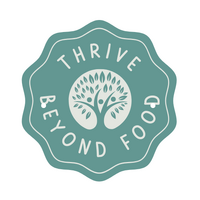
Why is it so challenging to quit overdrinking? The simple answer is – the desire to drink is programmed into our brains as an automatic habit.
When we want to change a habit, we need to realize that the same things that haven't worked for us in the past aren't going to work now. We need to change what we’re doing and use the power of our brains to become more conscious of our automatic programming.
We give up on trying to cut down or quit because we don’t have the right tools to succeed. We don't understand the difference between the struggle against the desire and the actual retraining and managing of that desire.
A Short Review of Desire
Desire is something that we learn. Desire is one of those unconscious, programmed things that we seem to experience involuntarily.
It’s because of the way the brain works. When we learn something and repeat it many times, the brain recognizes that it’s a pattern and then takes it out of the thinking part of the brain, the prefrontal cortex, where it takes a lot of energy to think about and puts it back in the midbrain so it can be automatic.
Desire is a habit. Habits aren’t something you have to think about consciously. Walking, brushing your teeth, driving your car—it’s all learned behavior. In the beginning, learning the behavior took a lot of energy, but once you repeated it several times, it became automatic. Now it's something that goes on automatically in the background - it's not something that you consciously think about.
Desire is the same thing. Desire is something that we learn through repetition. You practice the behavior enough times and get rewarded enough times for practicing it, that it becomes natural, something that’s going on in your involuntary brain.
When you see a glass of wine, you feel desire that seems like it’s coming from something unconscious. It seems involuntary because it’s something you’ve programmed into your mind.
If you go to war against desire, you’re probably going to lose, because it’s your automatic, primitive brain going up against your thinking, decision-making brain. If you don’t know how to manage it, the automatic, primitive brain is always going to win in the present moment.
When we learn how to overcome our primitive brain with our thinking brain, we’ll be set. We will succeed. We’ll be able to stop overdrinking.
Why we can’t use willpower or resistance to stop overdrinking
The problem with trying to use willpower is that willpower depletes itself. We have a limited amount of willpower. When we use it, it’s what we call “white knuckling” it.
- We decide to fight against desire.
- We try to resist it.
- We feel deprived.
- We feel terrible.
- All we want is relief.
- Now we feel worse than we did before.
When our willpower depletes, we give in and drink, and the cycle beings again.
Let’s take a hypothetical situation – say I decide to cut back on my alcohol consumption. I make a deliberate decision that I’m not going to drink wine on weeknights.
And then 5 o’clock happens. Work is over for the day. It’s time to prepare the evening meal.
Usually, I have a nice glass of cabernet to celebrate the end of a day well done while cooking a lovely meal.
I love my celebratory glass of cabernet! I want to enjoy my after-work treat. But I decided not to include alcohol in my weekday routine. So now I use my willpower and resist opening that bottle.
This resistance creates a struggle between my primitive brain that says, “alcohol is really important to my survival,” and my thinking brain that says, “suck it up, cupcake – we’ve decided not to drink!!"
The struggle creates a feeling of anxiety, which makes me want to drink even more.
I want the cabernet.
I use my willpower and struggle against it, and that struggle creates anxiety.
In this situation, I’m likely to give in to my desire to drink and resolve the anxiety that I created – by drinking that glass of wine!
I’ve developed a neural pathway in my primitive brain that says, "alcohol equals reward". In my attempt to quit, I create a second neural pathway, one that gives me an additional desire to drink. In my attempt to quit, I’ve trained my brain to want it more because I gave in to that desire after the struggle—and perpetuated the idea that alcohol provides relief.
If you've tried to cut back or quit, but found yourself drinking even more, that’s likely the reason why. You’ve created an additional neural pathway of desire.
We do this inadvertently, unknowingly intensifying our own desire. Because of this intensified desire, most of us believe that our struggle is escalating and that there’s something wrong with us.
Really, we’ve just unknowingly adding desire to desire.
When we try to stop, the desire intensifies
The more we drink, the more the dopamine receptors in our brain downregulate, so we require even more substance to feel the same effect.
When we resist, the feeling of deprivation intensifies, which perpetuates the idea that we’re unhappy and uncomfortable without alcohol.
- The thing that’s creating the desire is the alcohol.
- The thing that’s solving the desire is the alcohol.
The alcohol is creating a desire for itself!
That’s why people think it’s so powerful, but it’s not. The alcohol isn’t powerful at all, but when you add it to your brain, it creates a reaction that makes your brain think alcohol is more important than it is.
Alcohol is not important at all – it’s really not! It’s not important for your survival. It’s not important for your well-being. But, because of the reaction in the brain, the brain puts a huge importance on it.
In our society, the ability to drink without getting addicted is classified as “normal,” and if you’re unable to drink it without getting addicted, you somehow have a disease.
Being able to drink isn’t NORMAL, and not being able to drink isn’t ABNORMAL.
People who can drink alcohol without becoming addicted are amazing, but people who can’t do it aren’t “abnormal.”
Alcohol was never something we were meant to concentrate the way we have and use in the way we have.
People who can’t tolerate it are not diseased. They are healthy and have a natural response to a substance that creates a perpetual desire.
Let’s revisit the vicious cycle
- We try to quit drinking.
- In the process, we create the feeling of deprivation and anxiety.
- We think that there’s something wrong with us.
- We think that we’re completely out of control.
- We feel more anxious.
- This, of course, leads us to drink more and more and more.
- This perpetuates the thought that there’s something wrong with us.
- This leads us to seek more relief in alcohol.
And the cycle goes on!
This is true even on a small scale—for example, going from drinking two glasses of wine to three or maybe four. You can see how quickly that can increase.
And it’s not just alcohol. It’s the same with food. When we start depriving ourselves of sugar, we go through sugar withdrawal. We want it even more, and then we eat it even more, and then we want it even more.
If you’ve tried to use willpower, if you’ve tried to use resistance, if you’ve tried to talk yourself out of it, it has likely all made the desire to drink even stronger.
We don’t realize we’re perpetuating the desire that’s creating the problem in the first place. We’re trying to take care of ourselves, but we’re creating the exact opposite result.
Now What?
My program, Taking Back Control, is the perfect place to start if you’re interested in how to stop overdrinking. It is based on the most effective brain hacks to reduce the desire for alcohol.
As a coach, I don't work with people who have diagnosed eating disorders, but I do work with people who overeat emotionally. That's the same way I approach this work with people who want to stop overdrinking. I don't work with alcoholics. I don't have a twelve-step program. I don't work with people who want to go into recovery. There are many fine solutions for these people.
This program is for people who want to drink normally. Or maybe they want to quit drinking, but they are frustrated with the lack of help for functioning, normal people who don't want to "go into recovery."
I work with people who just want to decide if and how much they want to drink. They want to TAKE BACK CONTROL.
If that's you, this program is for you! You can find out more by contacting me at sheila.gravely@thelifest.com

Comments